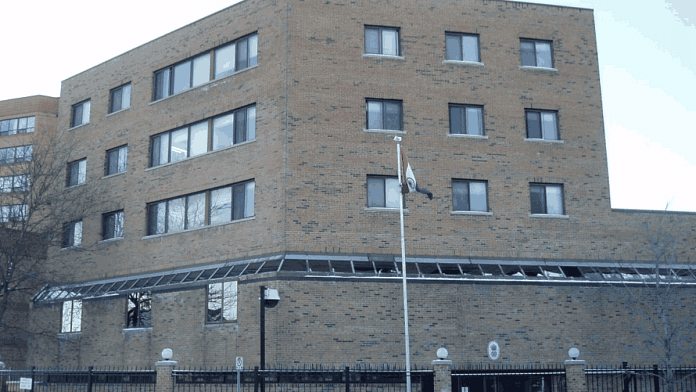New Delhi: Days before India and Canada became embroiled in a diplomatic row following Prime Minister Justin Trudeau’s allegation of India’s involvement in the June killing of Sikh extremist Hardeep Singh Nijjar in Canada — an allegation India has steadfastly denied — a Canadian news organisation had claimed an Indian diplomat posted in the country to be a “counterintelligence agent”.
In a report published on 15 September, Baaz — a pro-separatist media outlet catering to the “Punjabi and Sikh diaspora” in Canada — stated that the first secretary (consular) posted at the High Commission of India in Ottawa was a counterintelligence agent.
Consular officials at Indian foreign missions assist nationals abroad as well as non-resident Indians (NRIs) with issues ranging from providing emergency assistance including evacuations, during medical emergencies to issuing replacement passports. Under special circumstances, officials also assist persons of Indian origin and overseas citizen of India card holders, says the ministry of external affairs website.
Identifying him as Bikram Pal Singh Bhatty, the Baaz report went on to delve into his posting history.
According to the website of the High Commission of India in Canada, Bhatty handles “passport, visa and consular matters including OCI (overseas citizenship of India) cards, Indian nationals in distress and death cases”.
Speaking to ThePrint, Avtar Singh Bhasin, the former head of the historical division at the Ministry of External Affairs, explained that it is not “unusual” for police officers to be deputed to handle passport and visa matters in a large foreign mission.
“In large diplomatic missions, often an officer from the Ministry of Home Affairs is posted to handle passport and visa-related activities. It is not an unusual practice and is done with the full knowledge of the host nation,” Bhasin said.
The Baaz report came days before Canada expelled Pavan Kumar Rai, another Punjab cadre IPS officer posted at the High Commission of India in Ottawa, claiming him to be the head of India’s external intelligence agency, the Research and Analysis Wing (R&AW) in Canada.
Naming and expulsion of intelligence officers is frowned upon universally, as reported by ThePrint last week.
Given Bhatty’s reported background as an IPS officer, Baaz has accused him of working as a counterintelligence agent in Canada.
“Indian intelligence agencies, such as IB (Intelligence Bureau) and RAW, have a track record of engaging in foreign interference and espionage in Canada, including through its diplomats and their offices across the country,” it said.
Also read: Punjab’s Sikhs have 99 problems but Khalistan ain’t one. They’re very proud Indians, but angry
Why false reporting is dangerous
According to Baaz, Bhatty is a 2007 batch IPS officer who served in Phillaur, Jalandhar, and Amritsar. It further claimed that in 2015, Bhatty was deputed as an assistant director in the IB. Following his stint in the IB, Baaz claimed, Bhatty was reassigned to a central deputation with the Ministry of External Affairs and posted to the High Commission of India in Ottawa in 2022.
All of Bhatty’s postings have been reported in public with articles across media and news organisations highlighting his promotions and deputations. The article by Baaz also links to the publicly available information reported by the Indian media. However, the Baaz article could put the life of the Indian diplomat at risk in Canada.
In 1979, based on false radio reports that the US “was responsible” for the seizure of the Sacred Mosque in Mecca, a mob of over 10,000 Pakistanis attacked the US embassy in Islamabad, throwing bricks and setting cars on fire, all the while calling for the killing of “American dogs”, as was reported by Time magazine in 1979.
According to media reports, the mob set the embassy on fire. One American marine, one American warrant officer, two Pakistani embassy clerks and two rioters were found dead after the seven-hour rampage.
In July this year, posters with images of two Indian diplomats — India’s High Commissioner to Ottawa, Sanjay Kumar Verma and the Consul General in Toronto, Apoorva Srivastava — were circulated as the “faces” of Nijjar’s killers. The false narratives spread by separatists put the lives of Indian diplomats at risk and external affairs minister of India S. Jaishankar at the time said that this “would impact bilateral ties”.
The ministry of external affairs Thursday announced a temporary suspension of visas to Canadians owing to the “threat” Indian diplomats face in the country.
(Edited by Smriti Sinha)
Also read: Why Justin Trudeau’s India accusation complicates Western efforts to rein in China



